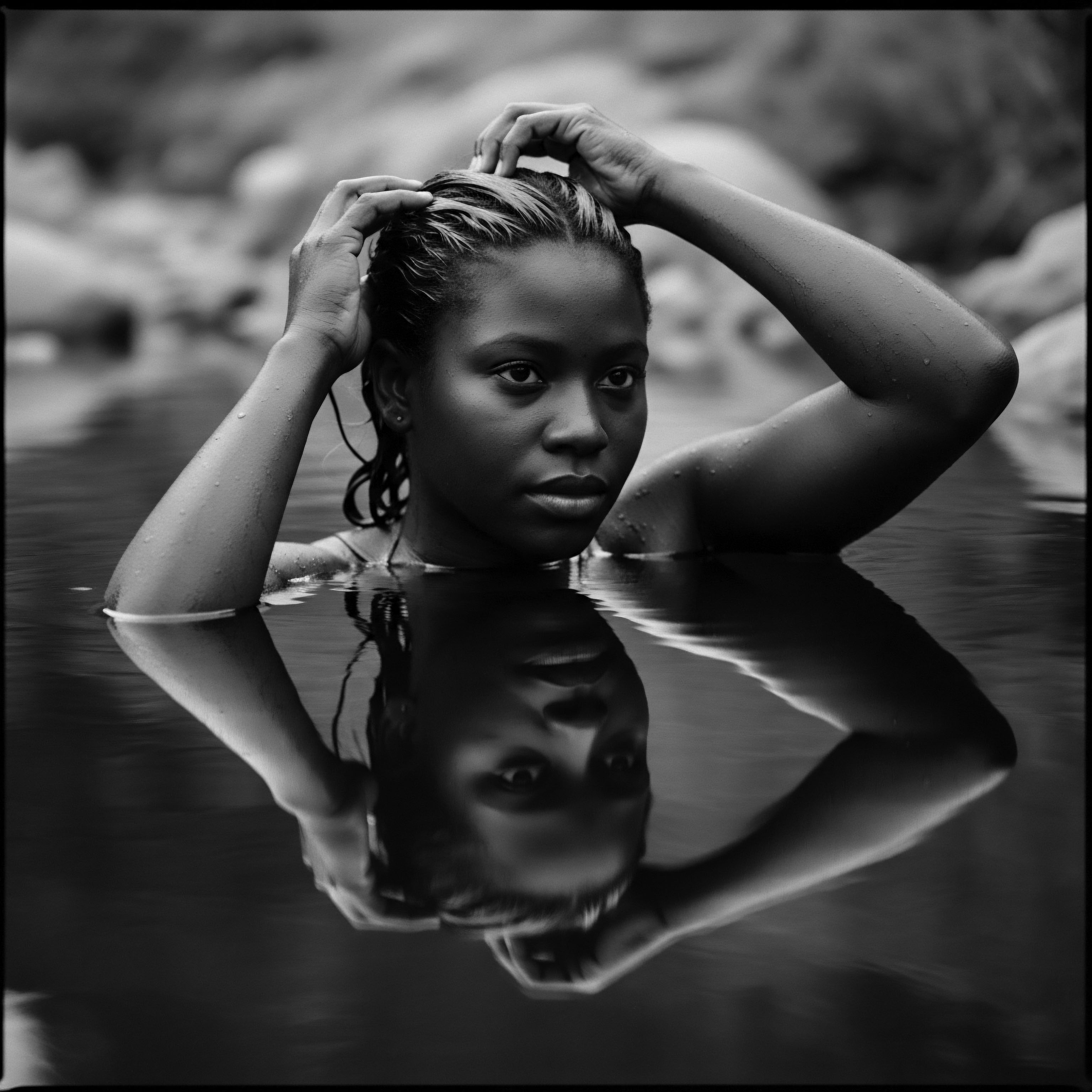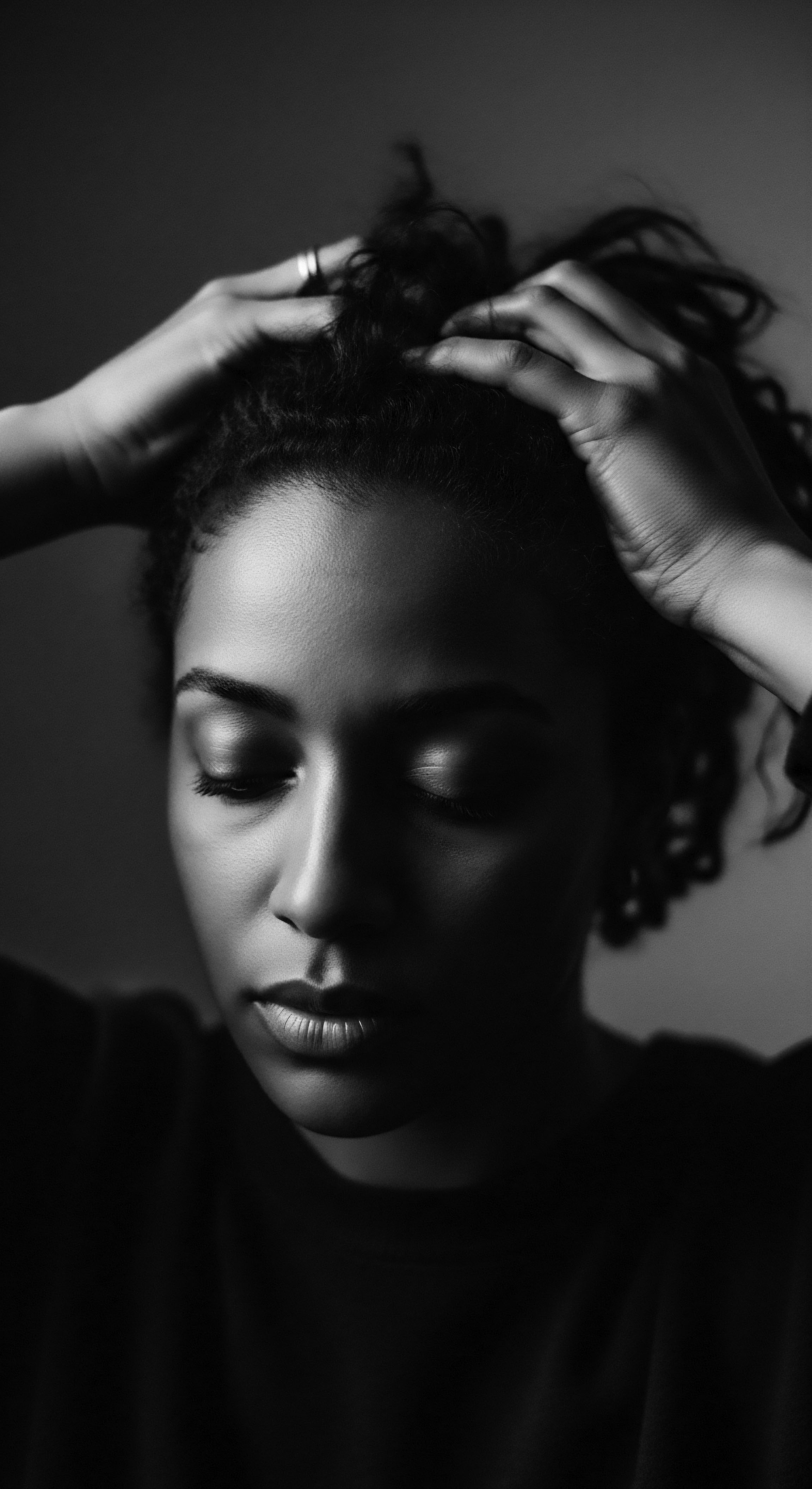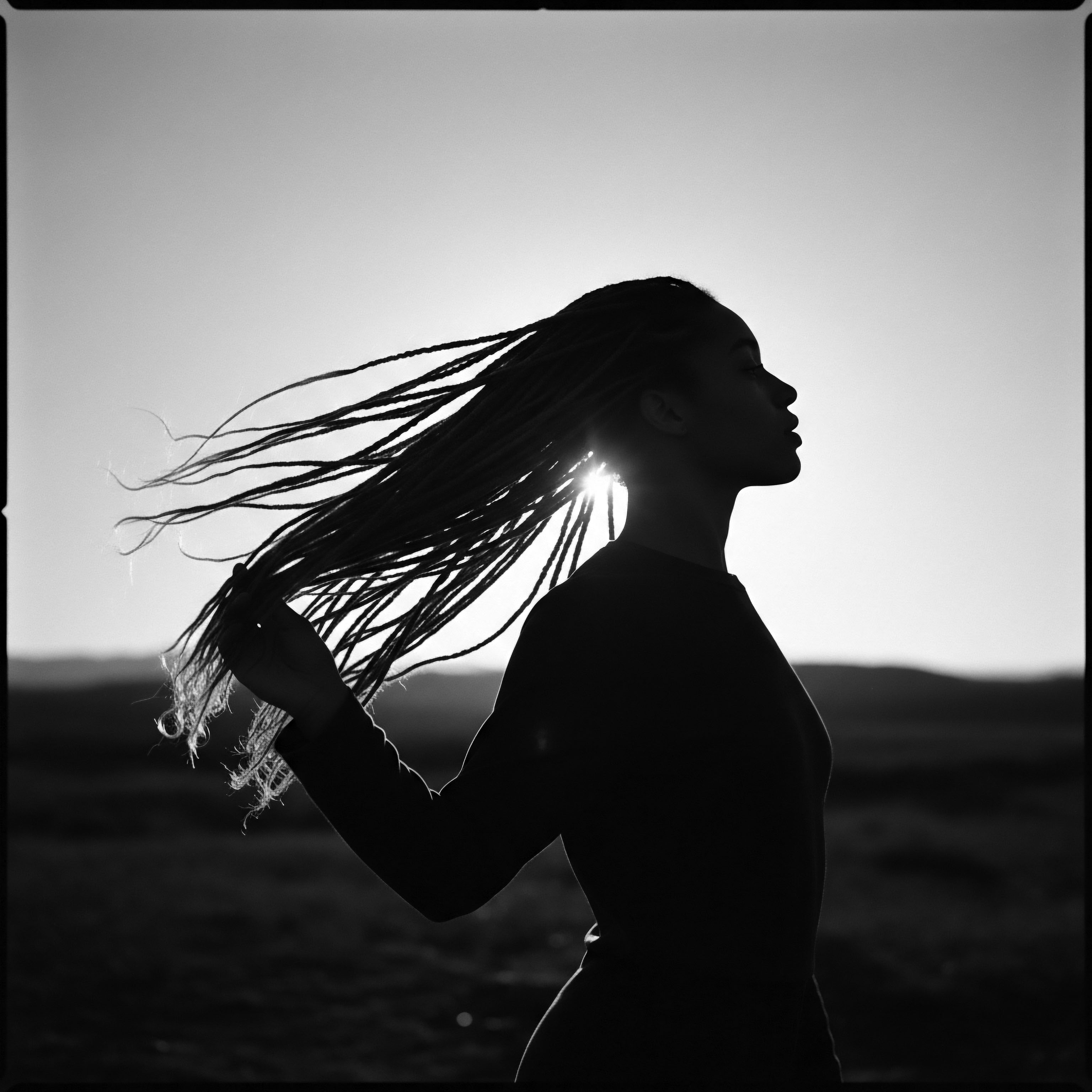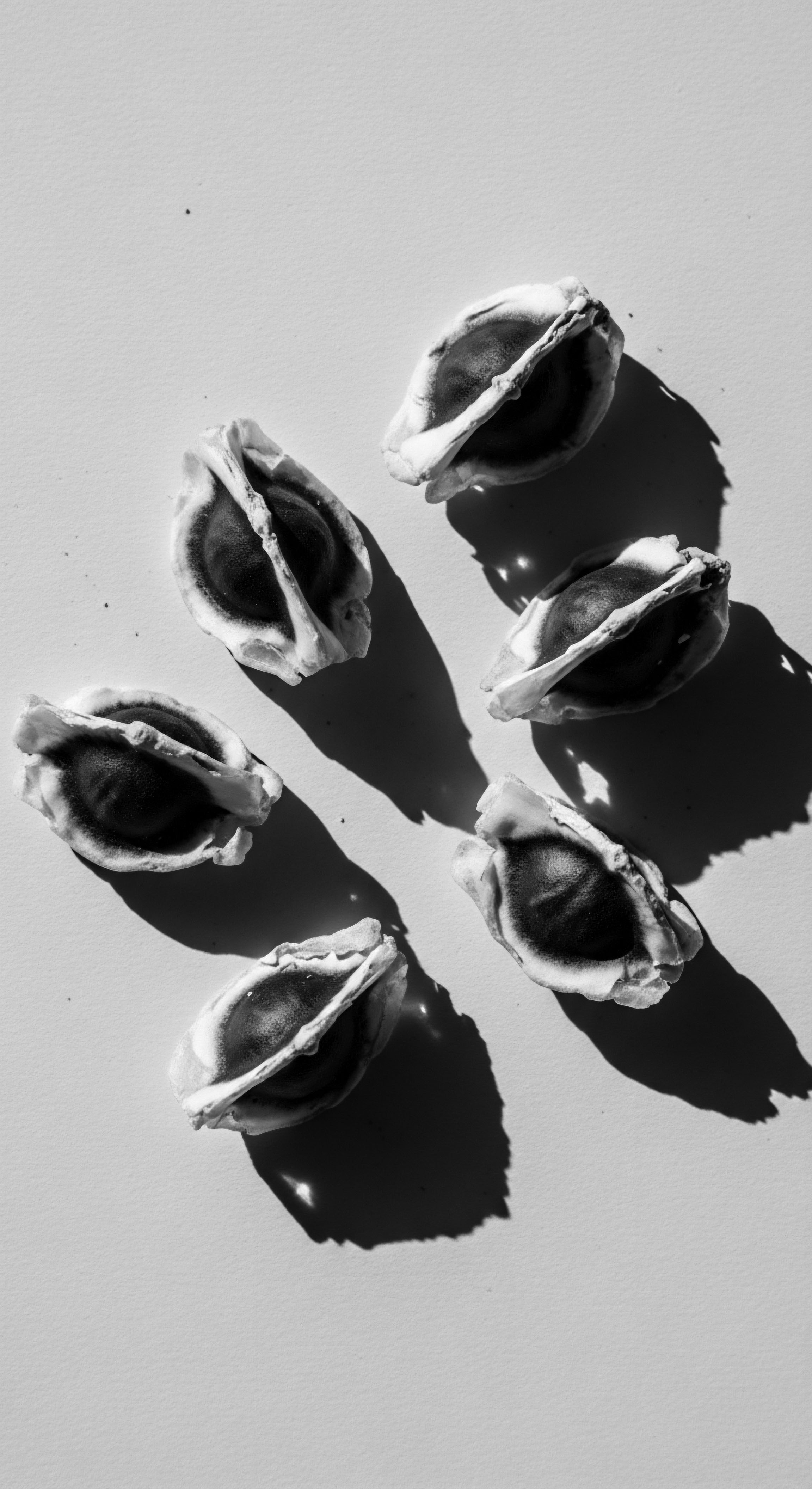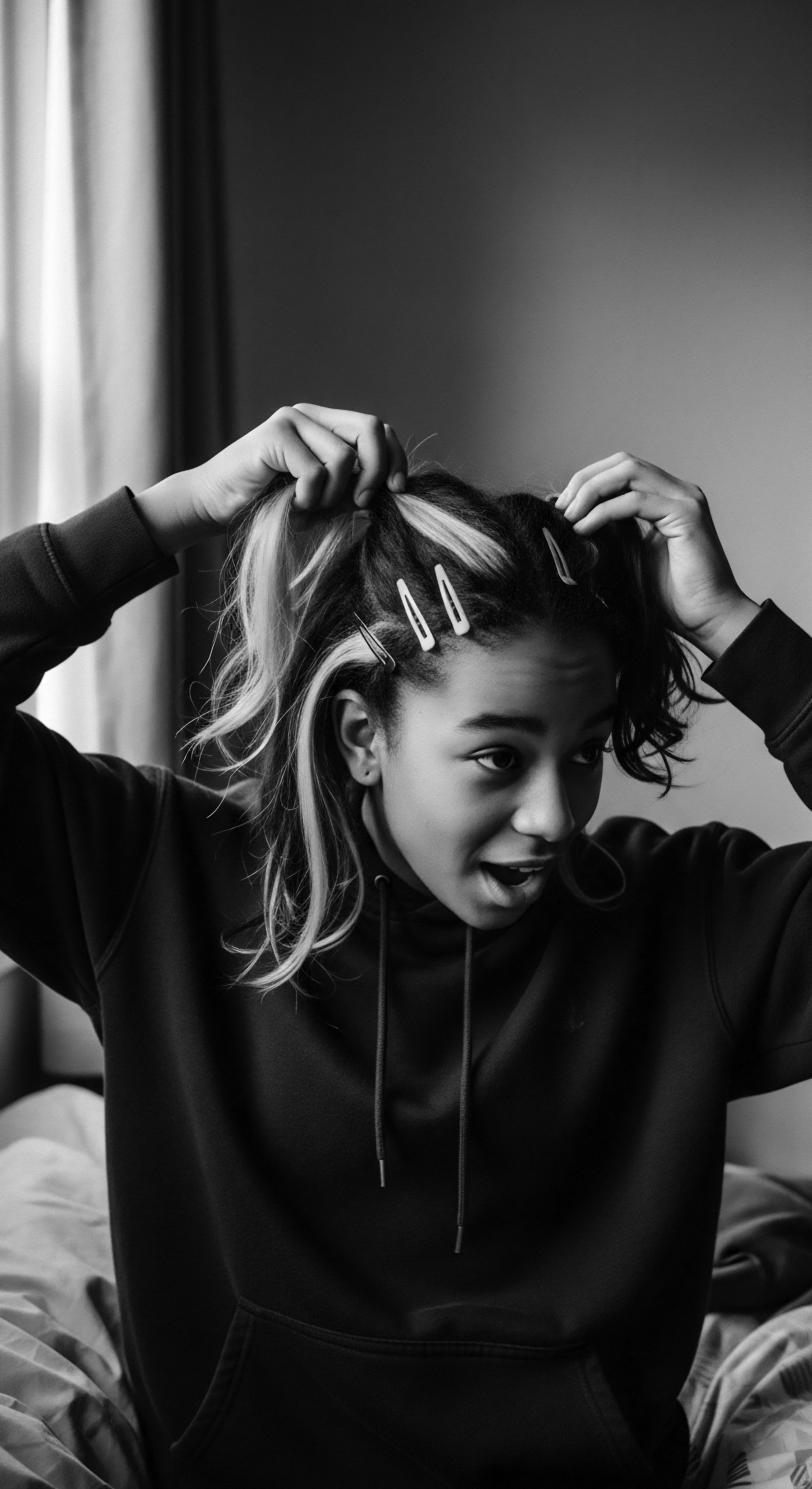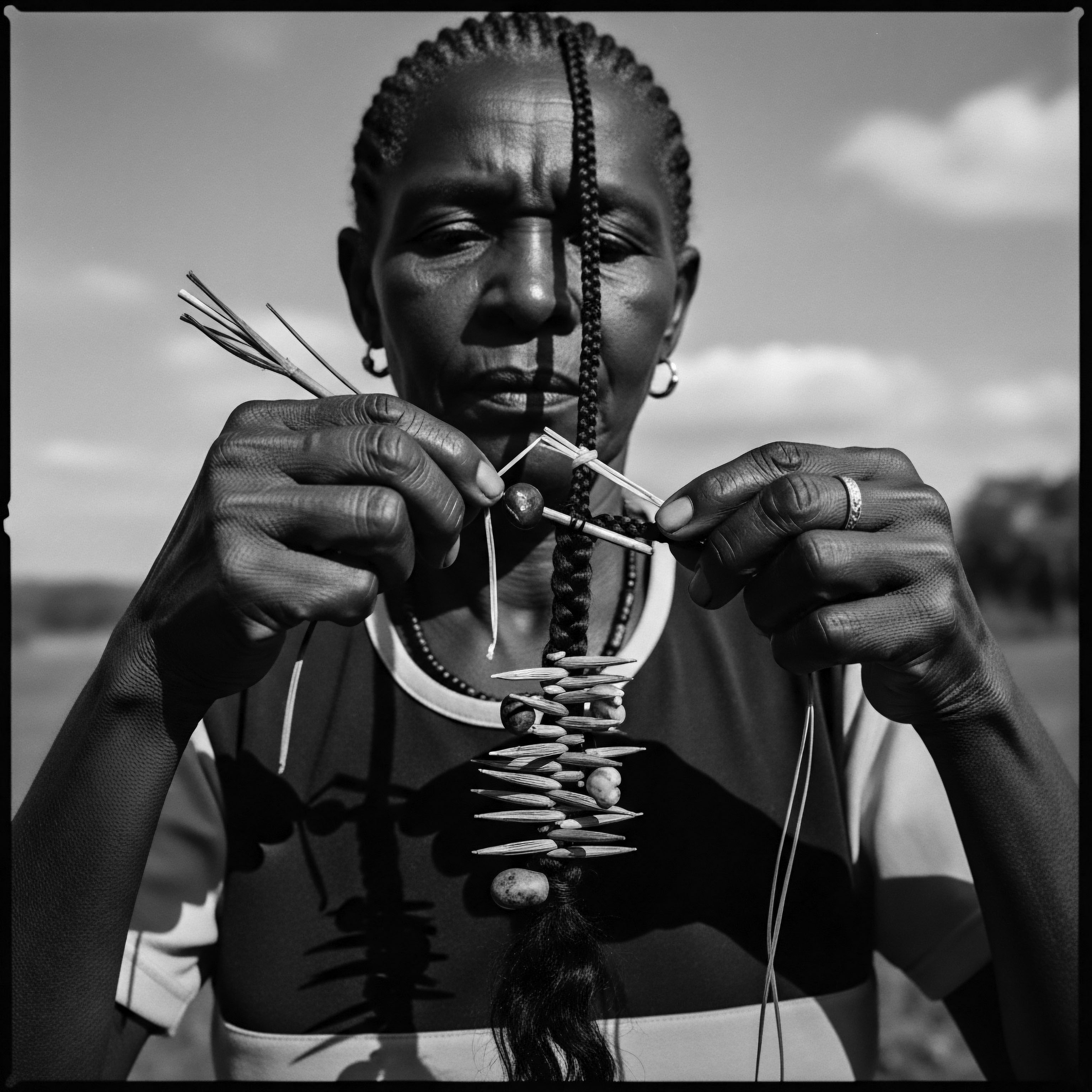
Fundamentals
The Psychological Hair Impact, within the living library of Roothea, signifies the profound, interwoven effects that hair, particularly textured hair, holds upon an individual’s sense of self, emotional well-being, social interactions, and even their ancestral connection. It is an exploration of how the strands that spring from our scalp are not merely biological filaments, but potent carriers of personal history, cultural narratives, and societal expectations. This designation, the Psychological Hair Impact, serves as a framework to understand the intricate relationship between one’s hair and their inner world, especially for those whose hair textures have been historically marginalized or misunderstood. It is a fundamental truth that our hair, from the tightest coil to the loosest wave, carries a unique story, shaping perceptions and experiences in ways both subtle and profound.
Understanding the Psychological Hair Impact begins with recognizing hair as a powerful extension of identity. For individuals with textured hair, this connection runs particularly deep, rooted in generations of shared experiences. It’s not just about how one styles their hair, but how that styling, or even the natural state of their hair, is received by the world around them.
This perception, in turn, molds feelings of confidence, belonging, and self-worth. The fundamental meaning here is that hair, far from being a superficial adornment, is a core component of one’s psychological landscape, particularly when considering the rich heritage of Black and mixed-race hair traditions.
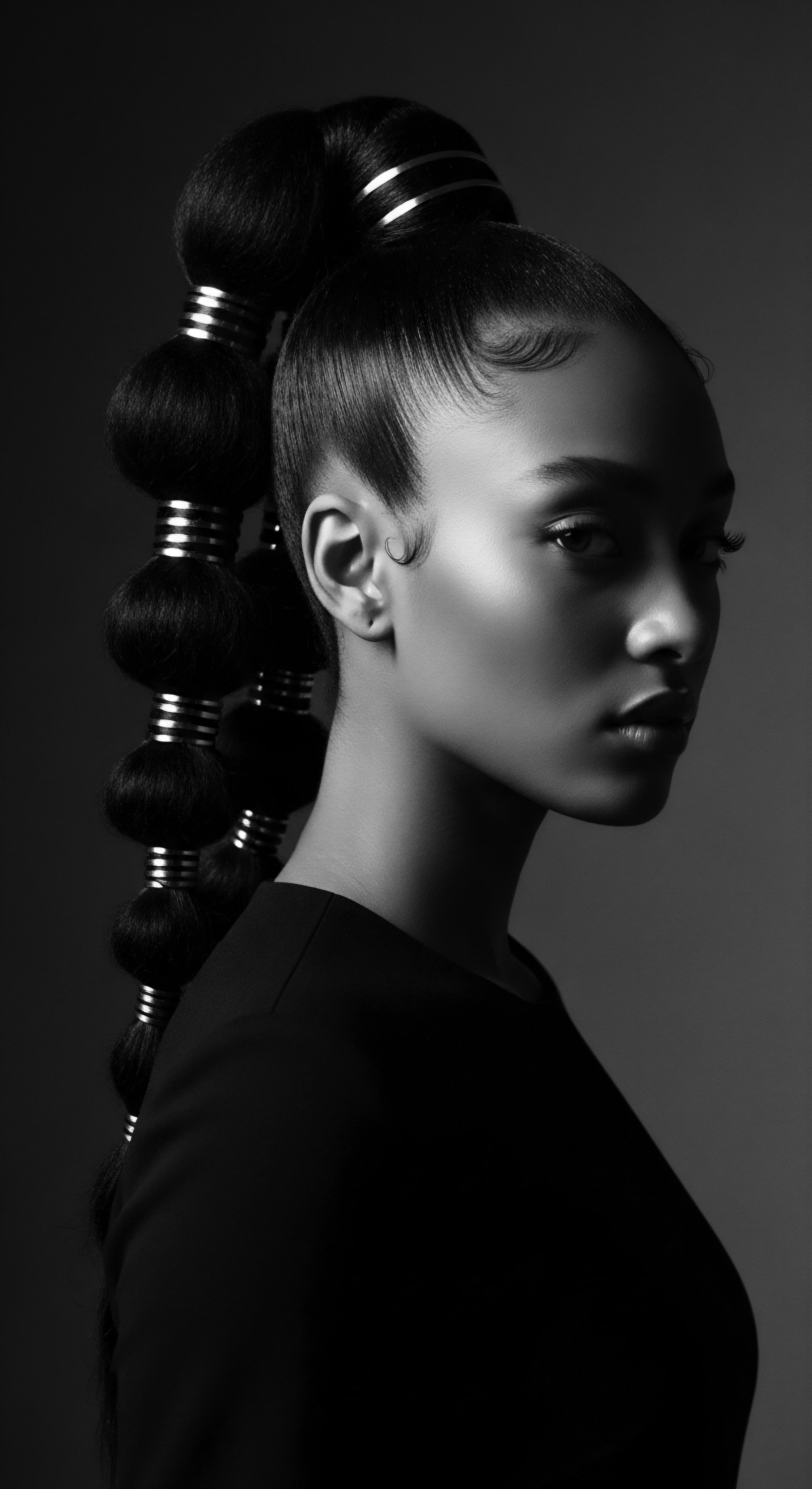
Hair as a First Language of Self
From the earliest days, hair has served as a silent language, communicating status, marital standing, tribal affiliation, and spiritual devotion across diverse African societies. This historical precedent lays the groundwork for appreciating the enduring significance of hair in the present. The Psychological Hair Impact, therefore, acknowledges this primal connection, recognizing that for many, especially those of African descent, hair is not merely an aesthetic choice; it is a declaration of lineage, a whisper of ancient practices, and a vibrant expression of personal and collective identity. The way hair is cared for, adorned, or even concealed, speaks volumes about an individual’s inner world and their place within a broader cultural context.
This initial understanding of the Psychological Hair Impact is critical for anyone beginning to delve into the deeper layers of textured hair heritage. It encourages a shift in perspective, moving beyond superficial observations to a more empathetic and historically informed appreciation of hair’s psychological weight.
The Psychological Hair Impact defines the intricate connection between hair and an individual’s self-perception, emotional state, and cultural identity, especially significant for those with textured hair.
To truly grasp the essence of this impact, one must consider the everyday realities. A child with tightly coiled hair, for instance, learning to navigate a world that often champions straighter textures, experiences a unique set of psychological negotiations. The simple act of washing and styling can become a ritual of self-discovery, or, conversely, a source of frustration if the knowledge and tools to care for it are absent or if societal pressures dictate conformity.
- Cultural Expression ❉ Hair has long been a canvas for artistic and cultural expression within Black and mixed-race communities, from elaborate braiding patterns to the proud display of natural afros.
- Social Acceptance ❉ The acceptance or rejection of one’s natural hair texture can profoundly affect feelings of belonging and self-esteem.
- Personal Well-being ❉ The journey of hair care, from selecting ancestral ingredients to mastering intricate styles, contributes to a sense of accomplishment and connection to heritage.
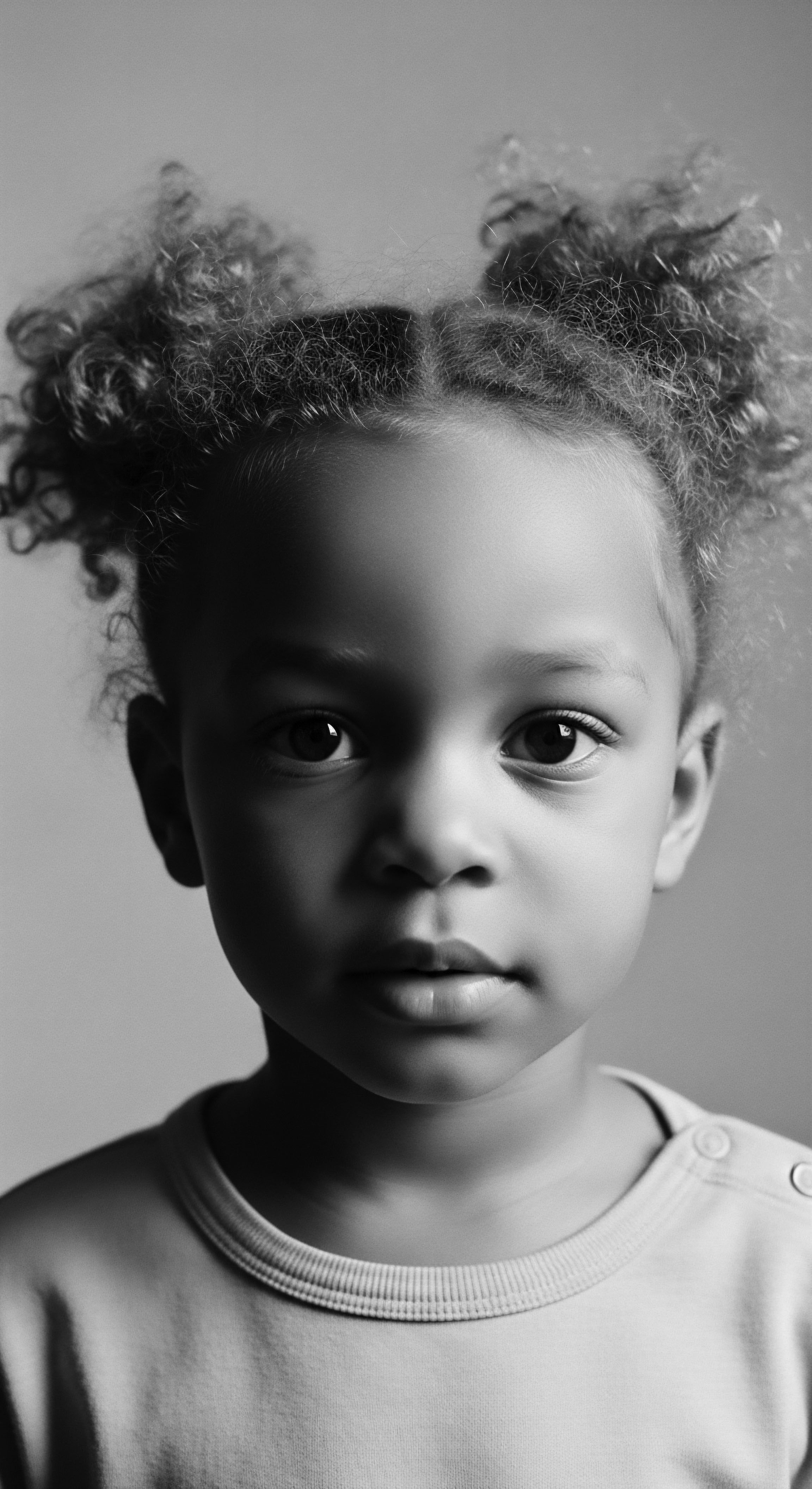
Intermediate
Stepping beyond the fundamental understanding, the Psychological Hair Impact takes on a more complex meaning, particularly when examining its role within the historical and contemporary experiences of Black and mixed-race individuals. This involves a deeper exploration of how societal norms, often rooted in Eurocentric beauty standards, have historically influenced and continue to shape the psychological relationship people have with their textured hair. The intermediate interpretation of this concept requires an examination of the subtle and overt pressures that can lead to feelings of inadequacy or the suppression of one’s natural hair identity.
The significance of hair, in this context, extends beyond personal preference to become a marker of social standing, a site of political resistance, and a conduit for ancestral memory. The Psychological Hair Impact, at this level, acknowledges the lived experiences of those who have navigated a world that frequently misunderstands, devalues, or even legislates against their natural hair. It is a concept that invites a deeper look into the systemic forces that contribute to the psychological burden some individuals carry regarding their hair.
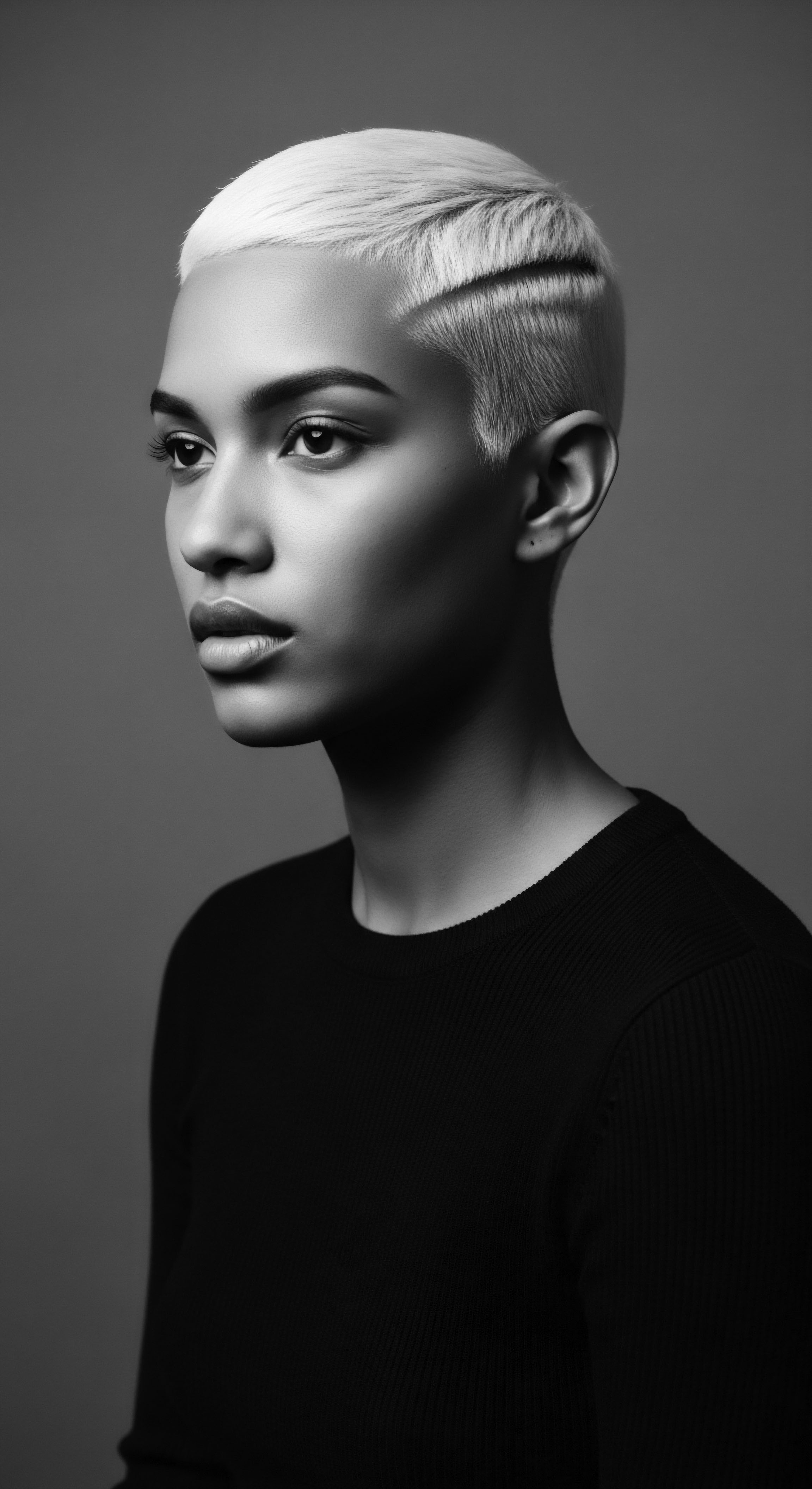
Echoes of Conformity and Resistance
Historically, the pressure to conform to beauty ideals that privileged straight hair led many Black individuals to adopt practices like chemical straightening, often at great physical and emotional cost. This historical context provides a crucial lens through which to understand the ongoing Psychological Hair Impact. The choices made about hair were not merely cosmetic; they were often strategies for survival, for acceptance in schools, workplaces, and broader society. The internal conflict arising from such pressures is a central aspect of the Psychological Hair Impact, highlighting the enduring struggle for self-acceptance and authenticity within a dominant culture.
Consider the profound historical example of the Tignon Laws of 18th-century Louisiana. These laws mandated that Black women, particularly those of mixed heritage who often wore elaborate hairstyles, cover their hair in public spaces with a tignon or headwrap. The stated purpose was to distinguish free women of color from white women, but the deeper implication was to suppress their perceived allure and social standing. This historical instance provides a stark illustration of how external forces sought to control and diminish the psychological power and cultural meaning of Black hair.
The act of covering one’s hair, once a symbol of adornment and pride, became a mandated act of subjugation, directly impacting the self-perception and public presentation of these women. Yet, even within these constraints, acts of resistance emerged, as women often chose vibrant, elaborate tignons, transforming a symbol of oppression into one of enduring beauty and resilience. This historical precedent underscores how the Psychological Hair Impact is not a static concept but one that has evolved through generations of struggle and triumph. (Mbilishaka, 2018b)
The intermediate understanding of Psychological Hair Impact recognizes how historical and societal pressures, like the Tignon Laws, have shaped the psychological relationship with textured hair, often leading to internal conflict and acts of subtle resistance.
The reverberations of such historical mandates continue to be felt today. Contemporary studies reveal that Black women are significantly more likely to feel they must straighten their hair for job interviews, a statistic that speaks volumes about the lingering effects of Eurocentric beauty standards on professional opportunities and personal well-being. (Consumer Notice, 2024) This ongoing pressure to alter one’s natural hair texture to achieve economic or social success is a clear manifestation of the Psychological Hair Impact. It reveals a societal expectation that can erode confidence and contribute to feelings of inadequacy, underscoring the deep connection between hair and mental health.
The Psychological Hair Impact also encompasses the resilience and strength found within communities. The rise of the natural hair movement, for example, represents a powerful collective shift, a reclamation of ancestral beauty, and a deliberate rejection of oppressive beauty standards. This movement, while outwardly focused on hair, has profound psychological underpinnings, fostering self-acceptance, community building, and a renewed appreciation for textured hair heritage. It is a testament to the fact that even in the face of adversity, the human spirit finds ways to affirm its authentic self, often through the very strands that adorn its crown.
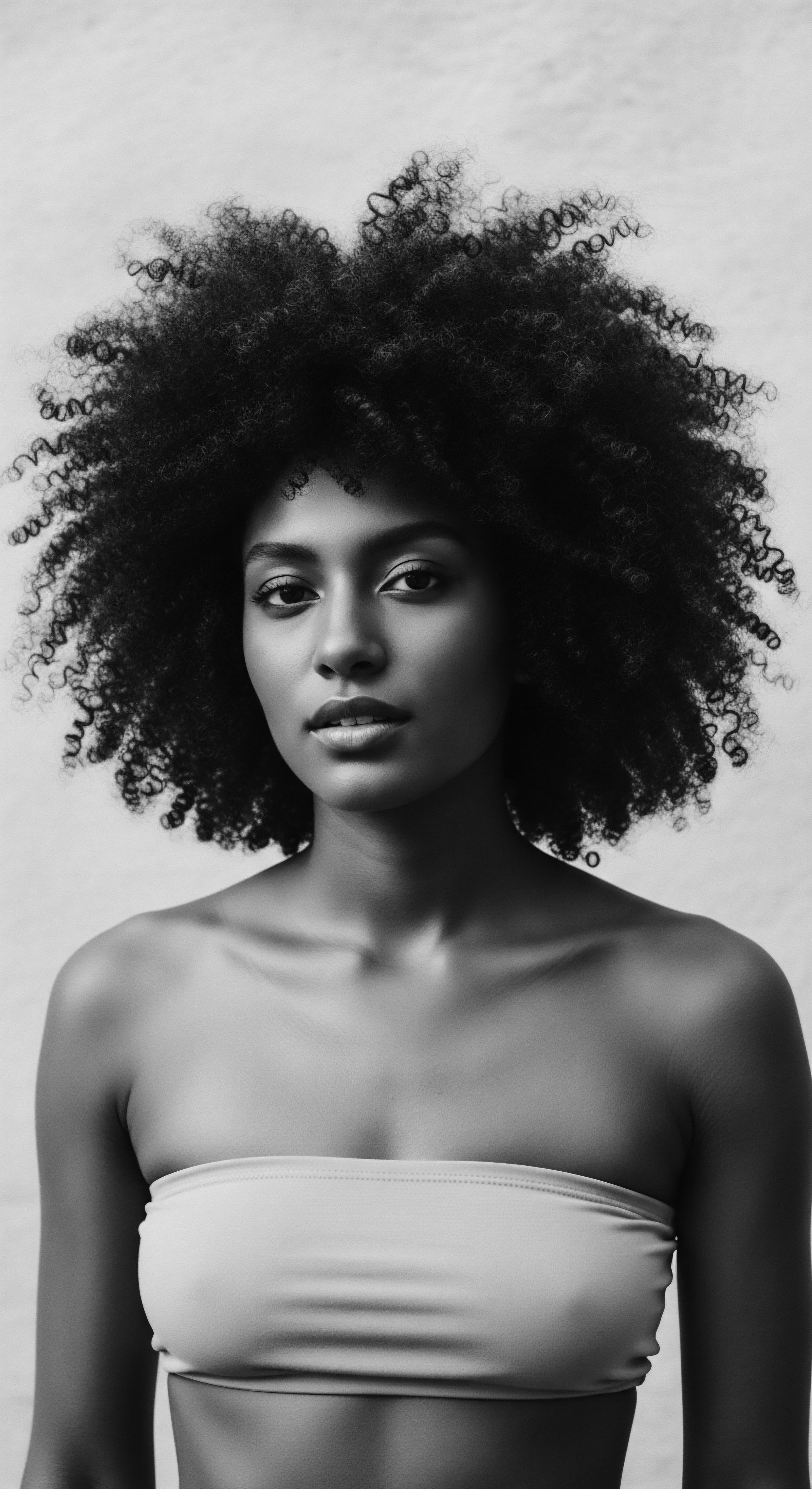
Academic
The Psychological Hair Impact, viewed through an academic lens, is a complex psychosocial construct that delineates the reciprocal relationship between an individual’s hair characteristics, particularly textured hair, and their cognitive, emotional, and behavioral functioning within a socio-cultural milieu. This academic interpretation moves beyond anecdotal observations to a rigorous examination, drawing upon empirical research in psychology, sociology, anthropology, and public health. Its meaning is grounded in the understanding that hair, as a salient aspect of phenotypic expression, serves as a nexus for identity formation, social categorization, and the internalization of beauty standards, often with disproportionate implications for individuals of Black and mixed-race heritage. The delineation of this concept requires an appreciation for the historical antecedents of hair-based discrimination and its contemporary manifestations, which collectively contribute to observable psychological outcomes.
The scholarly explication of the Psychological Hair Impact necessitates a comprehensive analysis of how external societal pressures intersect with internal self-perceptions. It is not merely about individual preferences, but about the systemic forces that shape those preferences and the resultant psychological consequences. This advanced understanding acknowledges hair as a dynamic element within the broader discourse of race, identity, and mental well-being. The interpretation here is that the hair on one’s head is a site of ongoing negotiation between inherited biology, ancestral practices, and the prevailing societal gaze, each contributing to a distinct psychological imprint.
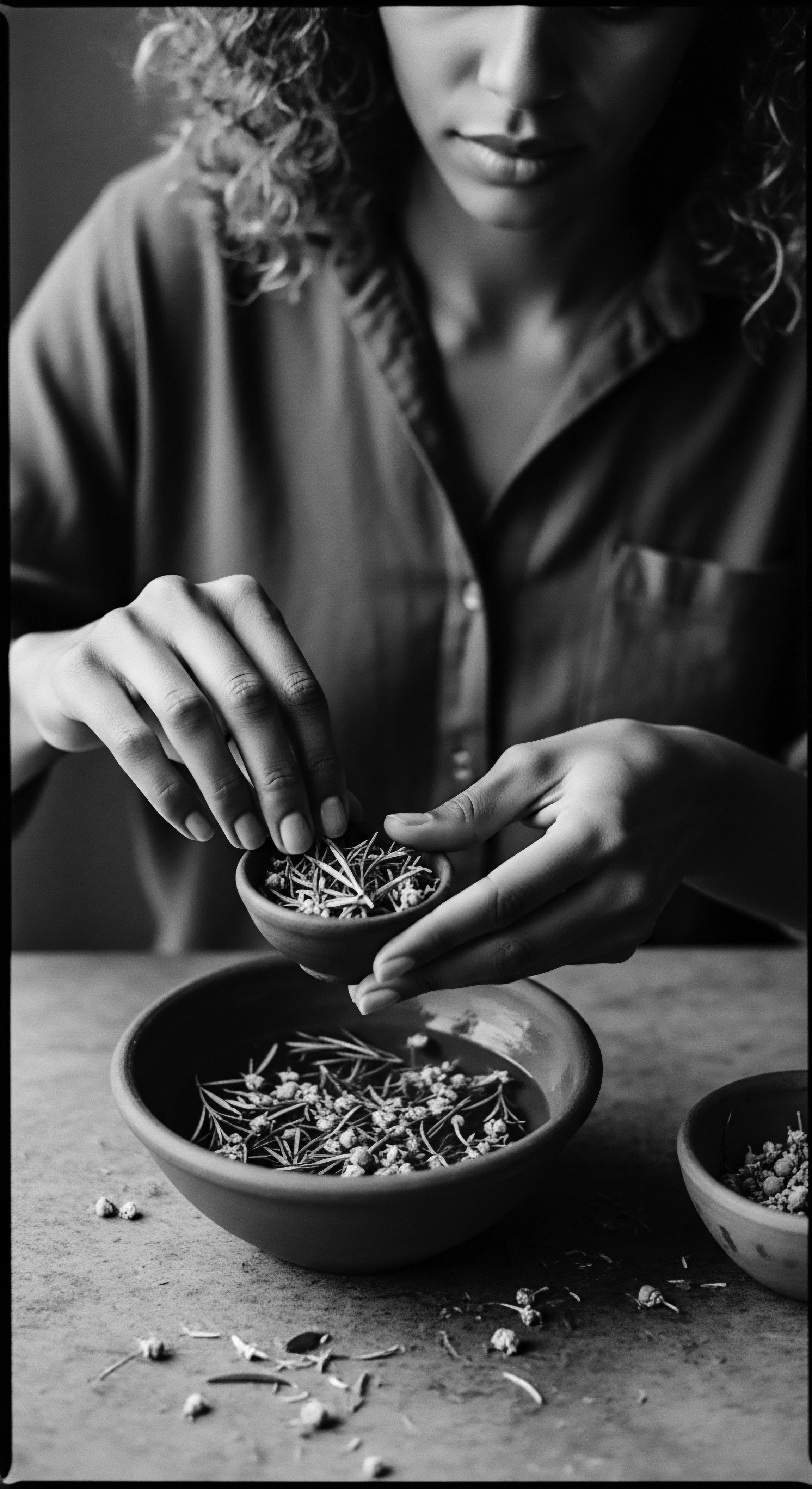
The Psychosocial Ecology of Textured Hair
Academic inquiry into the Psychological Hair Impact often begins with the concept of hair discrimination, recognized as a specific form of racial discrimination. This discriminatory treatment, frequently directed at natural or protective hairstyles associated with persons of African descent, can elicit significant emotional and mental health consequences. Research indicates that such discrimination, whether overt or subtle, functions as a chronic stressor, activating and prolonging the physiological stress response system.
The internalization of negative prejudices about one’s hair can lead to heightened and sustained stress, potentially impacting long-term psychological and physical health. (Consumer Notice, 2024; The Person Beneath the Hair, 2023)
A poignant case study illuminating the profound psychological implications of hair discrimination, particularly within the context of textured hair heritage, comes from a University of Connecticut study. This research, led by Adenique Lisse, a Black graduate student in clinical psychology, provides compelling evidence of the distinct and disproportionate impact of hair satisfaction on the mental well-being of Black adolescent girls. The study, published in the journal Body Image, surveyed 193 adolescent girls of Black, White, and Latina backgrounds regarding their satisfaction with various aspects of their appearance, their experiences with discrimination, and symptoms of depression. Lisse’s findings revealed a critical distinction: hair perception was the only area of physical appearance satisfaction where significant racial differences emerged.
Black participants, more than their White or Latina peers, reported experiencing higher levels of hair-related discrimination and subsequent dissatisfaction with their hair. Crucially, this hair dissatisfaction was a significant predictor of increased depressive symptoms in Black girls. (Lisse, 2025; UConn, 2025; Hair Love, 2025)
Academic research underscores that hair discrimination, particularly against textured hair, functions as a chronic stressor, with studies showing a direct link between hair dissatisfaction and increased depressive symptoms in Black adolescent girls.
This particular study’s specification is vital because it moves beyond generalized notions of body image to pinpoint hair as a uniquely potent factor in the mental health of Black girls. It highlights how societal biases against coily textures, often perceived as “unprofessional” or “unmanageable,” translate into tangible psychological distress. The research further underscores the need for culturally attuned interventions and policy changes, such as the CROWN Act, to mitigate these adverse psychological effects and affirm the inherent beauty and validity of diverse hair textures. The implications extend beyond individual distress, pointing to a systemic issue where cultural identity, as expressed through hair, becomes a battleground for mental well-being.
The academic understanding of the Psychological Hair Impact also involves the concept of “aesthetic trauma,” a term used by the Association of Black Psychologists to describe the severe mental health effects of hair discrimination. This designation elevates hair discrimination to a level comparable with other recognized traumas, emphasizing its capacity to inflict lasting psychological wounds. The ongoing need for individuals to anticipate, diagnose, and deflect attacks on their aesthetics creates a perpetual psycho-emotional demand, highlighting the profound psychological toll of living in a society that often devalues textured hair. (Mbilishaka, 2020; The Person Beneath the Hair, 2023)
Moreover, the academic discussion of the Psychological Hair Impact considers the intergenerational transfer of trauma. For some Black individuals, the experiences of their ancestors, who faced extreme forms of hair degradation during enslavement or through discriminatory laws like the Tignon Laws, can subtly influence contemporary psychological responses to hair. This inherited memory, though not always consciously recognized, contributes to the profound significance hair holds within the collective psyche of diasporic communities. The pursuit of “good hair” or the pressure to conform to Eurocentric standards, while seemingly individual choices, can be interpreted as echoes of historical survival strategies, deeply embedded within the psychological landscape.
The definition of Psychological Hair Impact, therefore, is a multi-layered construct. It encompasses the psychological distress stemming from discrimination, the resilience found in cultural affirmation movements, and the enduring connection to ancestral practices that imbue hair with profound meaning. This academic lens allows for a deeper appreciation of how hair is not merely a biological attribute but a powerful determinant of psychological health, especially for those whose heritage is intimately linked to the diverse and vibrant world of textured hair. The scholarship calls for a re-evaluation of societal norms and an acknowledgment of hair’s role in fostering holistic well-being, particularly within communities that have historically faced systemic pressures to conform.
- Internalized Bias ❉ The process by which individuals from marginalized groups adopt negative societal views about their own hair, leading to self-depreciation or attempts to alter their natural texture.
- Identity Salience ❉ The degree to which hair is central to an individual’s self-concept and sense of belonging, often heightened for those whose hair is a distinct cultural marker.
- Coping Mechanisms ❉ Strategies employed by individuals to navigate hair discrimination, ranging from seeking supportive communities to advocating for legislative change, such as the CROWN Act.
The continuous examination of the Psychological Hair Impact through research provides a robust foundation for advocacy and policy reform. The ongoing efforts to pass legislation like the CROWN Act, which prohibits discrimination based on hair texture and protective hairstyles, are direct responses to the documented psychological harm caused by such biases. These legislative endeavors represent a societal recognition of hair’s profound psychological weight and a commitment to safeguarding the mental well-being and cultural authenticity of all individuals. The academic discourse, therefore, does not remain in theoretical abstraction; it actively informs real-world solutions that aim to dismantle systemic barriers and promote a more inclusive understanding of beauty and identity.
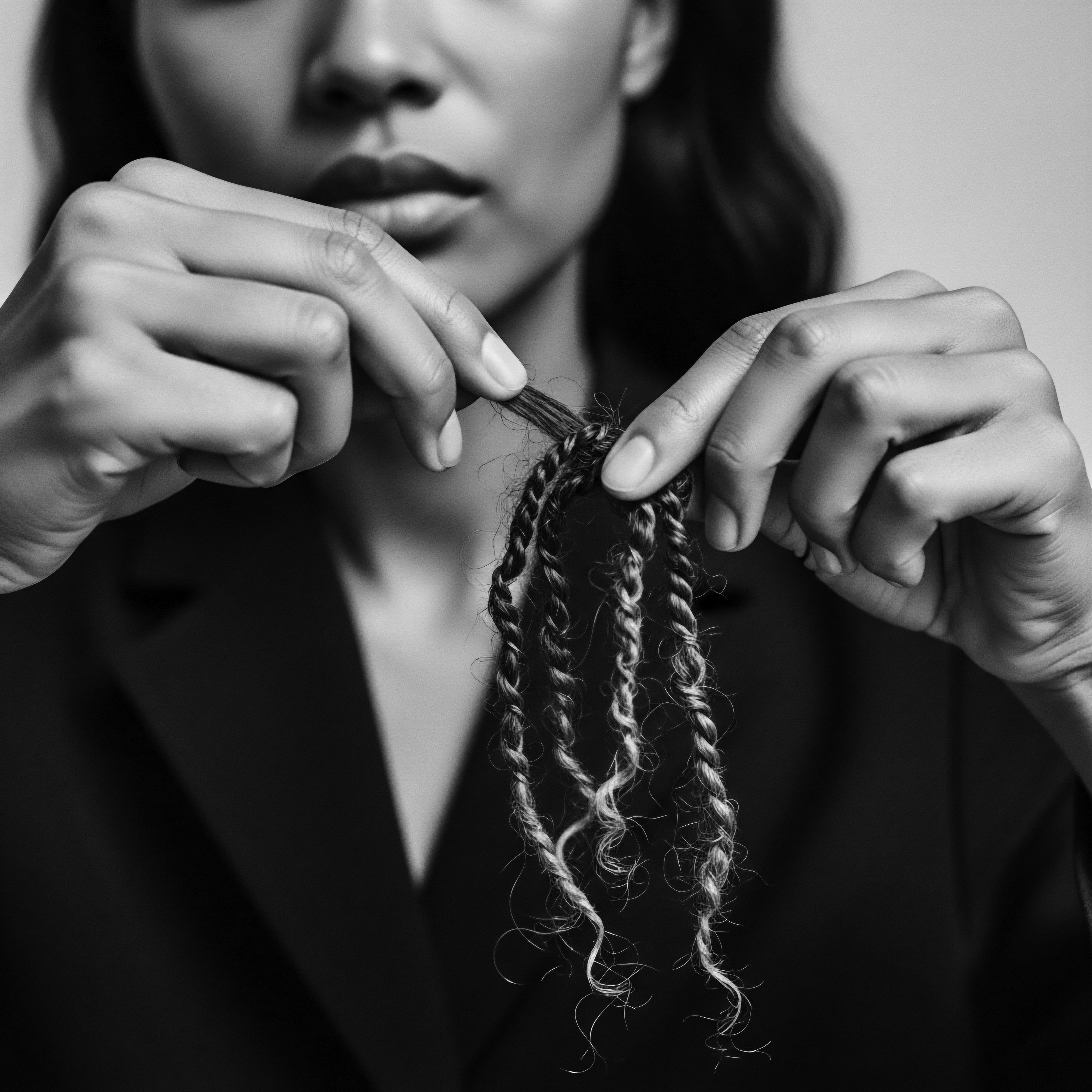
Reflection on the Heritage of Psychological Hair Impact
As we contemplate the multifaceted definition of the Psychological Hair Impact, a profound reflection emerges: the enduring power of textured hair heritage. It is a story whispered through generations, etched into the very helix of each strand, a testament to resilience, creativity, and identity. The journey of the Psychological Hair Impact, from elemental biology to its role in voicing identity and shaping futures, is inextricably tied to the ancestral wisdom that has always recognized hair as more than mere adornment.
Echoes from the Source remind us that long before colonial gazes imposed their narrow ideals, hair in African societies was a sacred language, a visual lexicon of community, status, and spirit. The meticulous care, the intricate braiding, the symbolic adornments ❉ these were not simply acts of grooming; they were profound rituals of connection, reinforcing a sense of belonging and self-worth. The Psychological Hair Impact, in its deepest sense, is the continuation of this ancient dialogue, albeit one now often navigating the complexities of a world that has, at times, sought to silence its voice.
The Tender Thread speaks to the living traditions of care and community that have sustained textured hair heritage through periods of immense challenge. It is in the communal spaces ❉ the hair salons, the family gatherings, the whispered advice from elder to youth ❉ that the Psychological Hair Impact is most palpably felt and positively shaped. These are the spaces where knowledge of ancestral ingredients, passed down through oral traditions, is shared, where techniques for nurturing coily and kinky textures are perfected, and where stories of resilience are exchanged.
The very act of caring for textured hair, often a lengthy and deliberate process, becomes a meditative practice, a connection to a lineage of care that affirms one’s place within a rich cultural narrative. This communal care mitigates the negative aspects of the Psychological Hair Impact, transforming potential sites of shame into spaces of affirmation and shared identity.
Finally, The Unbound Helix points to the future, a future where the Psychological Hair Impact is increasingly understood as a force for liberation and self-determination. The growing global movement for natural hair acceptance, buttressed by legislative efforts like the CROWN Act, is a powerful manifestation of this unbound spirit. It is a collective declaration that hair, in its natural glory, is beautiful, professional, and worthy of respect. This movement, born from a deep reverence for heritage, is actively reshaping societal perceptions and, in doing so, positively transforming the Psychological Hair Impact for countless individuals.
It allows for a more authentic expression of self, unburdened by the historical pressures of conformity, and fosters a profound sense of pride in one’s ancestral legacy. The wisdom of Roothea reminds us that in understanding and honoring our hair’s heritage, we not only heal past wounds but also sculpt a future where every strand tells a story of strength, beauty, and unwavering self-acceptance.
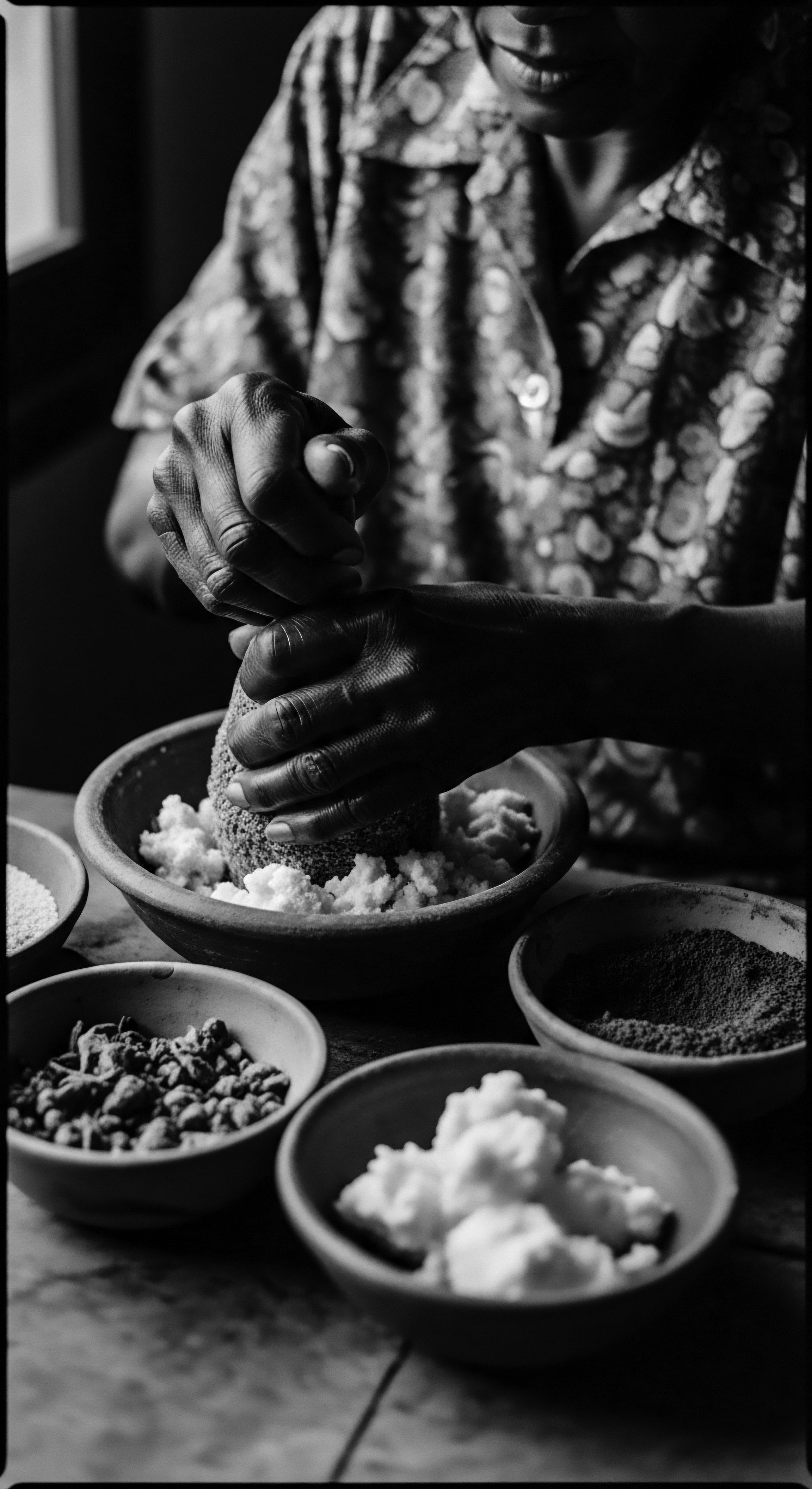
References
- Byrd, A. D. & Tharps, L. D. (2014). Hair Story: Untangling the Roots of Black Hair in America. St. Martin’s Press.
- Lisse, A. (2025). Study: Hair Satisfaction Plays A Major Role In Black Girls’ Mental Health. UConn Research.
- Mbilishaka, A. (2018). Black Hair Care Techniques are Intricate and Psychologically Meaningful Due to the Culture and History of Hair.
- Mbilishaka, A. (2020). Statement in Support of the CROWN Act in Maryland.
- Mbilishaka, A. M. (2024). Don’t Get It Twisted: Untangling the Psychology of Hair Discrimination Within Black Communities. American Journal of Orthopsychiatry.
- Walton, J. & Carter, E. (2013). The Texture of Beauty: The Science of Black Hair.

